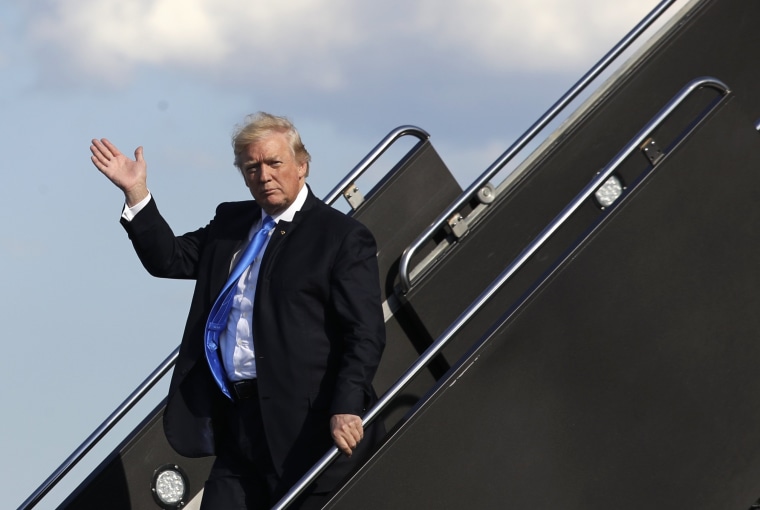Last week, a new diplomatic challenge emerged on the international stage, which carried with it sweeping consequences. In an unexpected development, five Middle Eastern countries -- Bahrain, Egypt, Saudi Arabia, the United Arab Emirates, and Yemen -- broke off ties with Qatar, hoping to isolate the country politically and economically. The countries said they were isolating Qatar over its alleged support for terrorism.
For the United States, the complexities required a delicate touch. After all, countries on both sides of the dispute are our allies, and we have 10,000 American military personnel stationed in the country that's found itself isolated.
The U.S. State Department offered to be a neutral arbiter, helping to possibly negotiate a resolution, which Donald Trump soon after made impossible by denouncing Qatar and endorsing Saudi Arabia's move.
MSNBC later reported that Trump, according to White House sources, "may not have known" about the American troops based in Qatar when he took sides in the dispute.
Late last week, it happened again. The Washington Post reported:
Secretary of State Rex Tillerson called on a Saudi Arabia-led bloc of Arab nations Friday to immediately ease their blockade of Qatar and urged all involved in the week-long Persian Gulf dispute to quickly resolve their differences, remarks that President Trump seemed to undercut less than an hour later.Trump began a Rose Garden news conference with the visiting president of Romania by saying that the Saudi-led action against Qatar was "hard but necessary." He said he had been consulted in advance by nations that "spoke to me about confronting Qatar," a country he said historically has been a "funder of terrorism at a very high level."
Tillerson, who's been ignored by the White House before, even as the Secretary of State tries to develop greater credibility on the international stage, had invested considerable energy in trying to persuade Saudi Arabia and its allies to relax their blockade. He then looked pretty foolish less than an hour later when his boss sent the opposite signal at a White House press conference.
It was the second time in a week that Tillerson tried to deescalate the Middle East crisis while Trump took public steps to escalate it.
In an apparent bid to make this appear less humiliating for the administration, a White House official later said Trump and Tillerson are on the "same page," but they're emphasizing different parts of the page.
That's hilariously unpersuasive.
Putting aside for now the question of why Tillerson doesn't just resign in frustration, who do you suppose speaks for U.S. foreign policy right now? Is it the Secretary of State, whom the president undercuts with confused public statements, or the president himself, who doesn't seem to understand what he's saying or what his administration ostensibly believes?
If you were a foreign official -- friend or foe -- could you say with confidence what the American position is on any major foreign policy issue, and whether or not that position will be the same tomorrow?
Postscript: Qatar, recognizing its growing political dilemma in D.C., has hired former Attorney General John Ashcroft to help oversee the country's "crisis response" operation.
